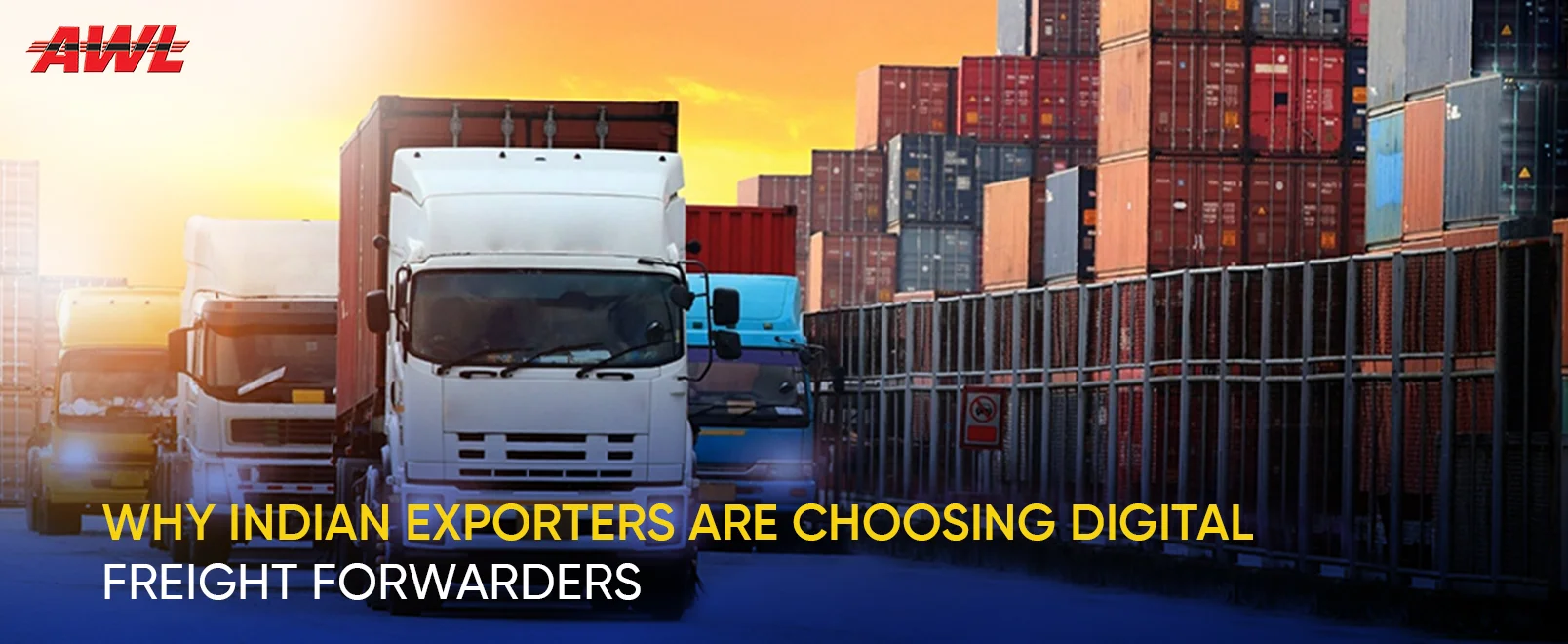

Export from India has changed a lot in recent years. New markets are opening. Demand is high for faster deliveries and smooth operations. Customers abroad expect shipments to arrive on time, without excuses. Exporters have started to look for partners who can match this pace.
Earlier, freight forwarding felt slow. Too much back-and-forth. Too many calls and emails before a booking was even confirmed. Tracking was unclear. If something went wrong, it often took hours to find the reason. That kind of delay is no longer acceptable.
Technology is now changing all of this. Exporters are turning towards freight partners who bring speed, transparency, and better control. This is where the digital model is making its mark.
From Old Methods to New Ways
Traditional forwarding worked for decades. You had an agent, sent details, and waited for updates. But as trade volumes grew, this system started to show its limits. Delays in communication meant missed opportunities. Rates were not always easy to compare. Documents could get misplaced.
Now, a digital freight forwarder gives exporters a different experience. Bookings can be done online. Prices from multiple carriers can be compared in seconds. Tracking happens in real time. Every step is visible on one platform. It feels faster because it is faster.
More Visibility for Every Shipment
Ask any exporter what they want most, and visibility comes up often. They want to know where their goods are right now. They want updates without having to call someone for them.
Digital tools make that possible. A few clicks and the current status is right there on the screen. If there’s a delay, they know immediately and can adjust their plans. Information on customs clearance, port schedules, or delivery timelines is available in one place. That kind of control was rare before.
Saving Costs the Smart Way
Freight is a big expense. If a company can cut this cost without hurting service, it’s a win. Digital freight companies often use automated systems to find the best deals. Rates from different carriers are compared instantly, and the most cost-effective route is chosen.
Because everything is transparent, exporters see exactly where their money is going. There’s less risk of surprise charges showing up later. Over time, this saves a lot and keeps the business more competitive.
Booking Without Delays
Speed matters in exports. If booking a shipment takes too long, a customer might choose another supplier. That’s why digital booking is a big advantage. It works much like booking a flight online quick, easy, and clear.
The same goes for paperwork. Instead of chasing physical copies, exporters can upload and share documents instantly. It’s faster, cleaner, and less prone to errors.
Better Communication and Support
Good service isn’t just about technology. It’s also about how quickly issues are solved. Digital freight forwarders usually have support available through chat, phone, or email. The response time is short.
Updates are shared automatically, so exporters don’t have to keep asking. This means less stress and more focus on other parts of the business.
Meeting International Requirements
Shipping goods abroad involves strict rules. Missing a document or ignoring a regulation can lead to fines or delays. A digital freight forwarder helps by keeping these checks in place.
Automated systems confirm whether the shipment meets the required standards before it leaves. This not only saves time but also avoids costly mistakes. Many exporters also appreciate options for eco-friendly shipping, which helps them meet sustainability goals.
Why Indian Exporters Are Making the Switch
Competition in global trade is intense. Faster delivery, accurate tracking, and better rates can set one exporter apart from another. Many digital freight forwarders in India are offering exactly that.
Instead of waiting days for quotes or updates, exporters now get answers instantly. This speed helps them promise more to their customers and actually deliver on those promises. The result is stronger trust and repeat business.
AWL India’s Role in This Change
AWL India is one of the names making digital freight easier for exporters. The company offers tools to book, track, and manage shipments from one dashboard. Exporters can see live updates, get accurate rates, and keep their documents in order without hassle.
Its strong network and reliable support mean goods move smoothly, even in complex situations. For exporters looking to scale their business, this mix of technology and service makes AWL India a strong choice.
Building a Stronger Supply Chain
An efficient supply chain doesn’t just move goods. It keeps customers satisfied, reduces costs, and builds business credibility. Digital tools help exporters keep everything in sync — from warehouse planning to final delivery.
AWL India supports this by offering a clear view of each shipment’s journey. Exporters can act quickly if there’s a problem, instead of waiting until it’s too late to fix.
The Future Looks Digital
The demand for smarter logistics will only grow. Exporters will expect more speed, more transparency, and more flexibility from their freight partners. Digital freight forwarders are likely to set the standard for how goods move across borders.
Technology will keep improving. AI and automation will make processes even faster. Blockchain might make documentation more secure. Exporters who work with partners ready for these changes will stay ahead of the curve.
Conclusion
This move towards digital freight is not a passing phase. It’s becoming the normal way to ship goods abroad. Exporters in India see the benefits clearly — lower costs, faster bookings, better control, and happier customers.
With companies like AWL India leading the way, the process is smoother than ever. Exporters can focus on winning new orders, confident that their logistics partner can keep up. In a market where speed and trust matter most, that’s a big advantage.

David Williams
Team Leader